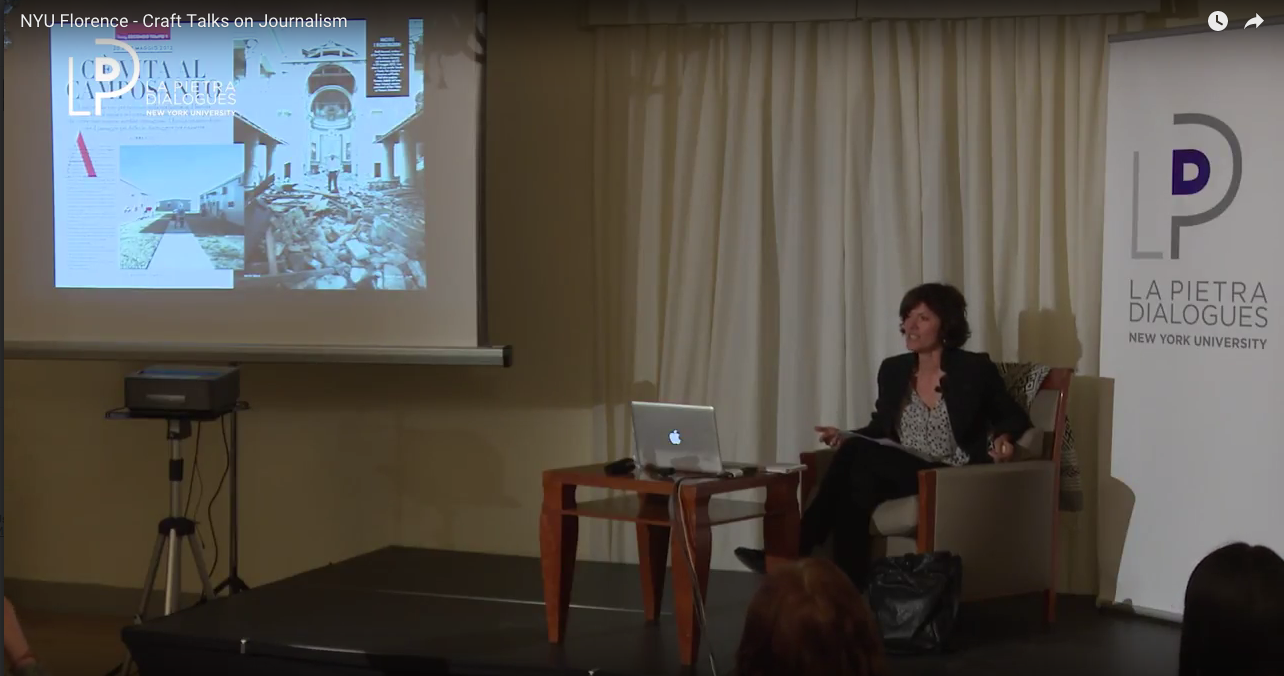Author and journalist Imma Vitelli graced the NYU Florence campus with her presence for her second dialogue of the semester, “The Craft of the Interview: How to Get People to Tell You Everything You Want to Know,” on March 2.
Vitelli, now an international correspondent for “Vanity Fair Italy,” shared her experiences as an interviewer and revealed her tricks in getting hesitant subjects to talk. Vitelli described interviews as essential to a story as pillars are to a house.
She opened the discussion by describing how to choose the subject of an interview. They should be “someone that can share wisdom that maybe not everyone knows. It can be anyone because we all have secrets.”
Vitelli shared the following tips:
- Successful interviews can often be determined by the amount of preparation given to them. “Do your homework,” Vitelli said. She suggested that in researching, both nonfiction and fiction should be read.
- Be respectful of the subject. “In Italy, journalists tend to be pompous,” Vitelli said. People are more willing to talk to a journalist that is “humble and low key.”
- The key to a good interview is listening. “If you are interested in their lives, people will tell their secrets,” Vitelli said.
- Getting inside someone’s house or other place where they feel comfortable is important because you may learn key details about that person’s life.
- Being patient is important. Not everyone wants to talk, but sometimes they will when they become more comfortable. Know when to back off and when to push forward. “Sometimes the best interviews are about timing,” Vitelli said.
- Be aware of the situation and surroundings. “If you want to play the game, you need to know how,” Vitelli said.
- Prepare a list of questions, but be prepared to lose them. “Be prepared to be surprised,” Vitelli said. Focusing on filling in an outline causes the little details to be overlooked.
She finished the talk with encouraging everyone to be a fair and accurate reporter. If there is any doubt about something being true, leave it out. Being a journalist “doesn’t pay, so you might as well do it correctly,” Vitelli said.

